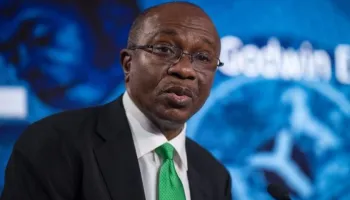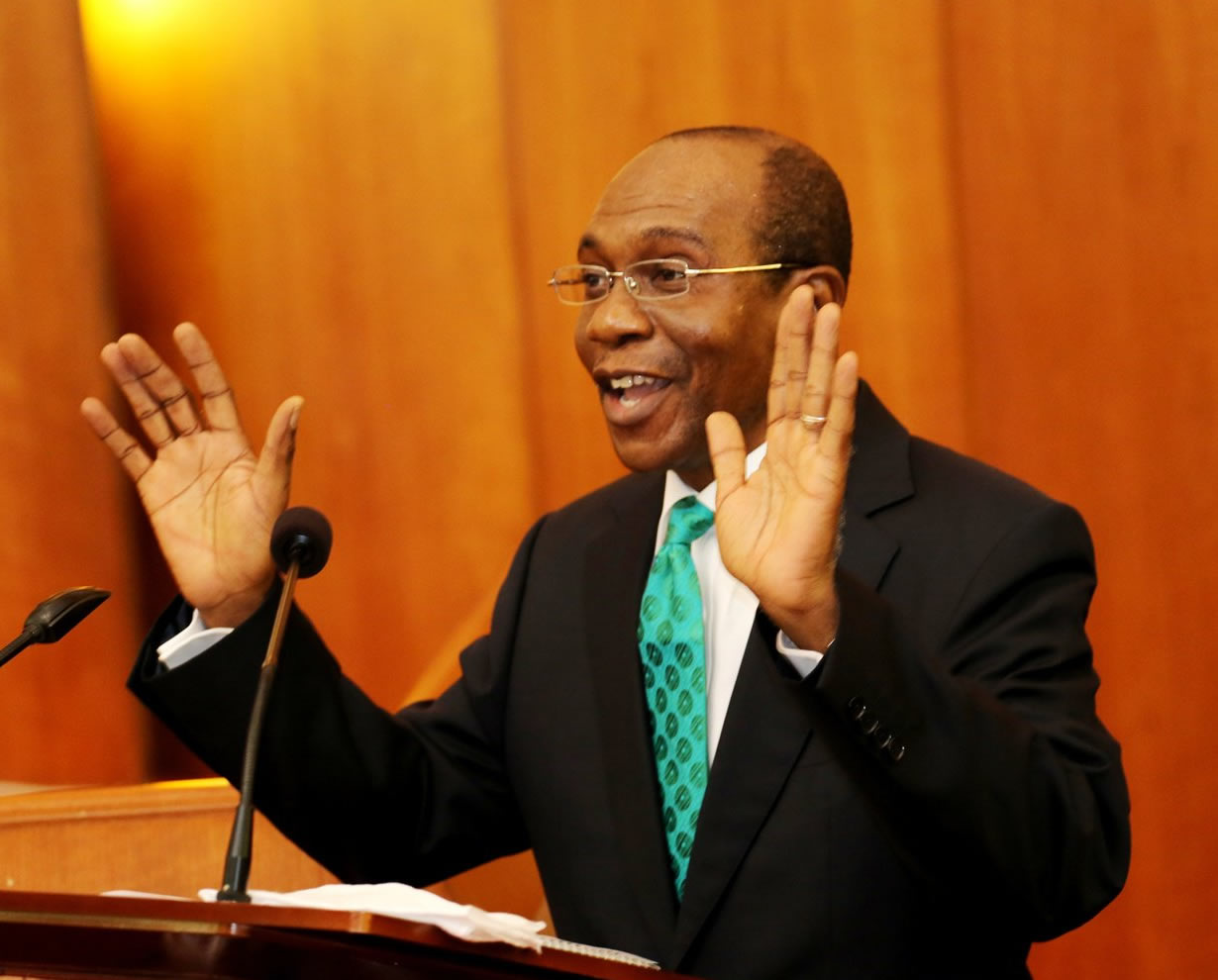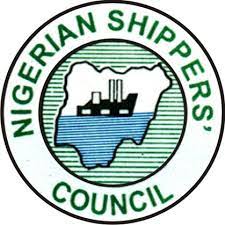Economy
ENaira Records 200,000 users, N4bn Transactions Value – Emefiele

The Central Bank of Nigeria (CBN), digital currency, eNaira has recorded 200,000 volumes and four billion Naira value of transactions since its inauguration in 2021.
Mr Godwin Emefiele, the CBN Governor said this on Thursday in Abuja at the grand finale of the “eNaira Hackathon”.
Newsmen report that the hackathon is a CBN’s collaborative initiative with the African Fintec Foundry (AFF).
it is aimed at bringing together teams of talented entrepreneurs, developers, designers, solution developers, problem-solvers and ‘code magicians’ from Africa to develop innovative solutions for improved adoption of the eNaira.
The competition was part of efforts by the CBN to drive financial inclusion, facilitate macroeconomic growth and integrate the Nigerian economy into the world-leading economies through innovation and cutting-edge emerging technologies.
The eNaira was inaugurated on Oct. 25, 2021 by President Muhammadu Buhari, making Nigeria the first African country to launch a Central Bank Digital Currency (CBDC).
Emefiele said since its inauguration, eNaira had reached 840,000 downloads, with about 270,000 active wallets comprising more than 252,000 consumer wallets and 17,000 merchant wallets.
According to him, the digital currency will enhance financial inclusion, support poverty reduction, enable direct welfare disbursement to citizens, support a resilient payments ecosystem and improve availability and usability of central bank money.
“The eNaira will also facilitate diaspora remittances, reduce the cost of processing cash, and also reduce cost and improve efficiency of cross-border payment,” he said.
The apex bank governor, however, said that the eNaira was the same Naira with far more possibilities.
“The eNaira will make a significant positive difference to Nigeria and Nigerians. It was also developed to provide Nigerians with a cheap, safe and trusted means of payment.
“It is unlike the offline payments channels like agent networks, USSD, wearables, cards and near field communication technology.
“The eNaira would give access to financial services to underserved and unbanked segments of the population,” he said.
He said that innovative products and services built on the eNaira would enhance Nigerians’ participation in the digital economy and promote further development of a burgeoning Fintech ecosystem.
“To achieve these set out objectives, the project adopted a phased- approach with the first phase focusing on banked users, while the policy objective of the second phase borders around financial inclusion.
“In addition, the eNaira platform possesses an innovation layer for products and services to be built with the aim of enhancing Nigerians’ participation in the digital economy,” he said.
According to Emefiele, the second phase of the project has begun and is intended to drive financial inclusion by onboarding unbanked and underserved users leveraging offline channels.
He said that the CBN was now ready to accommodate unbanked Nigerians in the eNaira platform
“Greater success is envisioned for the project with phase two expected to deliver more gains with a target of about eight million active users based on estimations using the diffusion of innovation model.
“When we launched the eNaira, we promised to increase the level of financial inclusion in the Country because just like the Naira, the eNaira is expected to be accessible to all Nigerians .
“It will provide more possibilities to bring in the unbanked into the digital economy.
” I am pleased to inform you that by next week, Nigerians, both banked and unbanked, will be able to open an eNaira wallet and conduct transactions by simply dialling *997 from their phones,” he said.
According to Mr kingsley Obiora, CBN’s Deputy Governor, Economic Policy, the use of physical cash is gradually getting out of fashion across the globe due to the growth of digital currencies.
“In south Korea, 77 per cent no longer use cash to do payment, while in the Philippines it is 30 per cent.
“In Nigeria, we are also seeing the same decline in the use of cash, the minting of currencies in the CBN has been reducing in the last couple of years.
“So alongside this reduction in the use of cash has also been an explosion in e-business and we have seen the value of e-business grow from 393 billion dollars in 2014 to about 2.4 trillion dollars now.
“If you look at this movement, you will realise that the central banks in the world are responding to yearnings of citizens.
“That is why 96 per cent of central banks in the world are either working on digital currencies or they have done so already,” he said.
Daniel Awe, the Group head, AFF, said that the CBN had transformed from traditional regulator to a smart regulator.
Awe said that the Hackathon was a platform that brings entrepreneurs, coders and product managers together to solve problems and build new business model.
“All over the world, there has been disagreement between innovators and regulators.
“This is because regulators usually look at impact on financial stability, impact of those innovators on consumers as well as the risk, while the innovators look at the opportunity in their ideas.
“However, this CBN is different as it has over the years partnered with innovators that will create jobs and bring value,” he said. (NAN)
Economy
SEC Advocates Advanced Financial Inclusion by 2030

By Tony Obiechina, Abuja
The Securities and Exchange Commission (SEC) has stressed the need for Nigeria to harness its demographic dividend to advance financial inclusion through investments by 2030 for national survival or face deepening inequality.
The Director-General of the SEC, Dr Emomotimi Agama said this at the United Capital Asset Management Investment forum on Wednesday in Lagos.
Agama, in his keynote address titled: “Advancing Financial Inclusion through Investments: Bridging
Nigeria’s Knowledge and Wealth Gap,” said Nigeria must harness its demographic dividend to boost investment.
“Our theme, Advancing Financial Inclusion through Investments, is not aspirational; it is foundational to national survival.
“We stand at a pivotal moment. By 2030, Nigeria can either harness its demographic dividend or face deepening inequality. The knowledge-wealth gap is not merely an economic challenge; it is a moral imperative,” Agama said.
He said the term inclusion should be reframed as active financial involvement, where access meets empowerment, and capital becomes a tool for transformation.
Agama said that closing the financial inclusion gender gap could lift 700,000 Nigerians from poverty.
He said, “Nigeria has a great population yet we have a tiny drop of this number of persons involved in the capital market.
“That one reason for poverty, because we are running from money. We have to do something. Our market capitalisation is an opportunity to do something,
We all have
“We need to change the narrative and move the market forward. We must reach out to make the difference. We are committed to protecting investors and developing the market. Our goal is to do the right thing no matter whose ox is gored. We will work by the principles of fairness and equity to change the market. We will provide a fair ground for everyone to aspire.
He noted that MTN Nigeria’s share offering drew 150,000 new investors – 75 per cent women, 85 per cent under 40.
Agama recommended a four-pillar strategy for bridging the gaps.
He listed the four-pillar strategy as democratisation of financial knowledge, catalyse MSME Investment Channels, blended Finance Vehicles: Partner with Bank of Industry (BOI) to de-risk loans for women-led SMEs.
“We need to educate people about finances. As we drive this market, we do so for a purpose, I enjoin everyone to be the disciple and the apostles. Getting this market to move is a deliberate action,” he added.
| ReplyReply allForwardAdd reaction |
Economy
NPA Assures of Over N1.27trn Revenue in 2025

By Ubong Ukpong, Abuja
The Nigerian Ports Authority (NPA) on Monday assured that it would take into the coffers massive revenue of over N1.27 trillion in 2025, representing a 40 percent increase from the N894.86 billion it realized in 2024.
This ambitious target, the Authority said, was anchored on sweeping modernization efforts, the full activation of the Dangote Refinery’s marine operations, and the deployment of cutting-edge technology to enhance port efficiency.
Managing Director of the NPA, Abubakar Dantsoho, disclosed this in a presentation during his agency’s budget defence session wih the House of Representatives Committee on Ports and Harbours, where he defended the agency’s 2025 budget estimates and provided insights into its 2024 performance.
“Our 2025 budget proposal is more than figures, it reflects our aspirations for a more efficient, globally competitive port system,” Dantsoho told lawmakers, adding that over 70% of the proposed expenditure will go into capital projects.
For 2024, the Authority surpassed its revenue target of N865.39 billion, posting an actual realization of N894.86 billion.
However, Dantsoho revealed that only N417.86 billion, less than half of the approved N850.92 billion expenditure, had been spent as of the time of reporting.
Despite this, NPA made a record contribution of N400.8 billion to the Consolidated Revenue Fund (CRF) in 2024, nearly double the N213.23 billion remitted in 2023. Of this amount, a staggering N344.7 billion was deducted at source.
“This shows our unwavering commitment to national revenue generation, even when our own operational liquidity is affected,” the NPA boss stressed.
Dantsoho said the projected revenue increase is premised on several key assumptions and developments, including: The full operation of the Dangote Refinery, which alone is expected to draw in over 600 vessels annually through its Single Point Mooring (SPM) system; the commissioning of upgraded terminals at WACT and OMT, which will enhance container traffic; the implementation of automation tools such as the National Single Window, Port Community System (PCS), and Vessel Traffic Management System (VTMS); and increased cargo volumes stemming from global disruptions, including the Russia-Ukraine conflict, which has affected global trade routes.
He said the 2025 revenue is expected to come from the following key sources: Ship Dues, N544.06 billion; Cargo Dues, N413.06 billion; Concession Fees, N249.69 billion; and Administrative Revenue, N73.07 billion
Of the proposed N1.14 trillion total expenditure for 2025, N778.46 billion is earmarked for capital projects.
This investment, he said, will target the revitalization of critical infrastructure, including the Calabar, Warri, and Burutu ports and channels, and enhance towage services, channel depth, and compliance with international security conventions.
“Investments in infrastructure and technology are non-negotiable if we are to stay competitive regionally and globally,” Dantsoho emphasized.
He cited increasing competition from neighboring ports and aging assets across Nigeria’s coastal corridors.
The NPA also intends to address technology gaps by upgrading legacy systems and bolstering cybersecurity, ensuring Nigerian ports meet global standards for digital operations.
“We can say that with timely access to internally generated revenue and capital funds NPA would deliver the kind of impact Nigeria expects,” he said.
Chairman of the Committee, Hon. Nnolim Nnaji, urged the NPA to ramp up performance, improve port infrastructure, and play a greater role in addressing Nigeria’s revenue and unemployment challenges.
Nnaji said the ports remain a critical pillar of Nigeria’s economy, and urged the agency to meet rising expectations despite operational challenges.
“No country can thrive economically without high-performing ports. They are the economic heartbeat of every nation, determining how buoyant a country is through the flow of imports and exports,” Hon Nnaji said.
The committee praised NPA for its performance.
Nnaji stressed that the NPA’s performance has implications beyond maritime activity, noting that increased port output can significantly boost job creation across several sectors.
“The Nigerian Ports Authority is not just a revenue-generating agency, it is a national asset in terms of employment and economic impact.
“We expect to see detailed strategies on how to improve revenue generation and expand employment opportunities through your 2025 budget,” he said.
The lawmaker also pointed to growing interest in the development of new ports across the country but cautioned against neglecting existing port infrastructure.
“As we welcome investment in new ports, we must not abandon the old ones. Maintaining and upgrading our existing ports, both in the Eastern Corridor and the Western axis, is essential to long-term sustainability,” he added.
The Committee called for a clear outline from the NPA on how its 2025 financial plan will address pressing national concerns and reaffirm Nigeria’s competitiveness in regional and global maritime trade.
Economy
Senate Sets N10trn Revenue Target for NCS, Urges Agency to Curb Smuggling, Illicit Drugs

By Eze Okechukwu, Abuja
The Senate, through its Committee on Customs has set a revenue target of N10 trillion for the Nigeria Customs Service for the 2025 fiscal year, instead of the initial N6.584 trillion given to her earlier on while urging the agency to clamp down on smuggling and Illicit drugs.
The Chairman of the Committee, Senator Isah Jibrin (Kogi East), who gave the agency the marching order yesterday in Abuja during the budget defence of the revenue driving agency however commended her for exceeding its 2024 revenue target of N5.
079 trillion.The NCS team led by Deputy Comptroller General, Jibo Bello who represented the Comptroller General presented the 2024 budget performance with a revenue target of N5.
079 trillion, stressing that the proposal was exceeded by over a trillion naira.The Committee, obviously impressed by the performance commended NCS before asking them to go ahead and present the 2025 budget proposal, which the agency tied at N6.584 trillion revenue target with an expenditure of N1.132 trillion.
Following their presentation, members of the Senate Committee on Customs unanimously approved the recommendation of the revenue target of N6.584 trillion and the expenditure of N1.132 trillion for the 2025 financial year.
The Committee will subsequently present the budget proposal to the Senate at plenary most likely this week as the red chamber resumes today after a long recess tied to Eid celebration.
In his final remarks, Senator Jibrin emphasised the need for the NCS to rise up in terms of its surveillance with respect to illicit drugs and smuggling “to ensure that, as much as possible, you should be on top of your game”.
He said there are so many illicit drugs flowing all over the place, which according to him “is contributing to the issue of banditry in Nigeria because most of these guys are on drugs. What I’m saying is that, in addition to your revenue drives, you should also be mindful of some of these other functions.


























